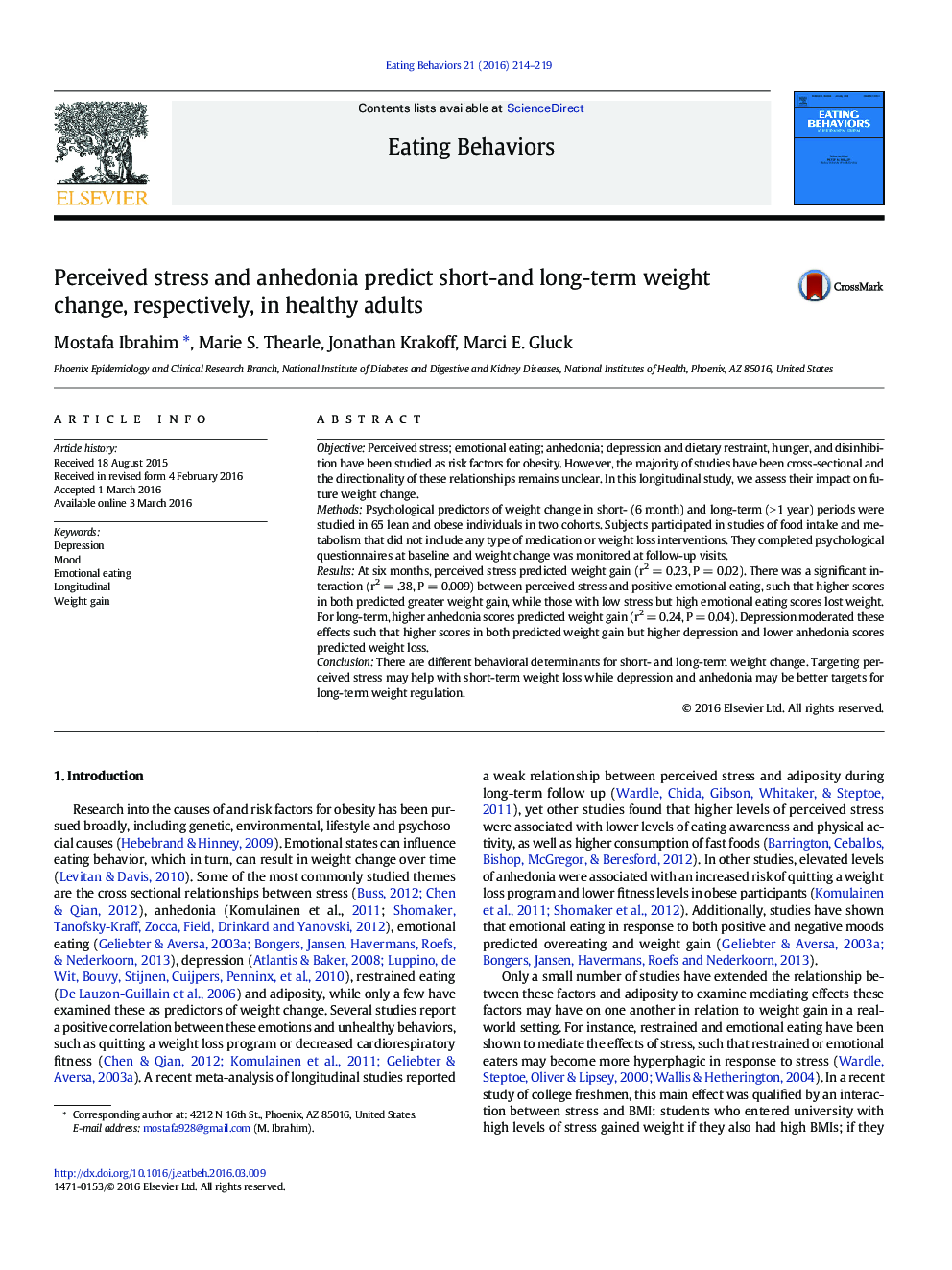| کد مقاله | کد نشریه | سال انتشار | مقاله انگلیسی | نسخه تمام متن |
|---|---|---|---|---|
| 906257 | 1472882 | 2016 | 6 صفحه PDF | دانلود رایگان |
• There may be different mechanisms that predict short- versus long- term weight gain.
• We examine psychological predictors and their interactions on weight gain.
• Perceived stress and emotional eating interact to predict short-term weight gain.
• Depression and anhedonia interact to predict long-term weight gain.
ObjectivePerceived stress; emotional eating; anhedonia; depression and dietary restraint, hunger, and disinhibition have been studied as risk factors for obesity. However, the majority of studies have been cross-sectional and the directionality of these relationships remains unclear. In this longitudinal study, we assess their impact on future weight change.MethodsPsychological predictors of weight change in short- (6 month) and long-term (> 1 year) periods were studied in 65 lean and obese individuals in two cohorts. Subjects participated in studies of food intake and metabolism that did not include any type of medication or weight loss interventions. They completed psychological questionnaires at baseline and weight change was monitored at follow-up visits.ResultsAt six months, perceived stress predicted weight gain (r2 = 0.23, P = 0.02). There was a significant interaction (r2 = .38, P = 0.009) between perceived stress and positive emotional eating, such that higher scores in both predicted greater weight gain, while those with low stress but high emotional eating scores lost weight. For long-term, higher anhedonia scores predicted weight gain (r2 = 0.24, P = 0.04). Depression moderated these effects such that higher scores in both predicted weight gain but higher depression and lower anhedonia scores predicted weight loss.ConclusionThere are different behavioral determinants for short- and long-term weight change. Targeting perceived stress may help with short-term weight loss while depression and anhedonia may be better targets for long-term weight regulation.
Journal: Eating Behaviors - Volume 21, April 2016, Pages 214–219
